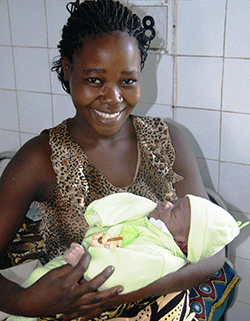Improving HIV Outcomes through Health Communication Webinar
[toggle title=”Webinar Resources” load=”hide”]
Presentations:
The Role of Communication Across the HIV/AIDS Continuum of Care, Doug Storey, PhD
Behavioral Interventions for HIV Prevention: Role of Message Content, Blair T. Johnson, PhD
Multi-Level Approaches to Changing Behavior for HIV Prevention and AIDS Care, Michelle R. Kaufman, PhD
Additional References:
Use of Mass Media Campaigns to Change Health Behaviour
The Behavior Change Technique Taxonomy (v1) of 93 Hierarchically Clustered Techniques: Building an International Consensus for the Reporting of Behavior Change Interventions
Standard Care Impact on Effects of Highly Active Antiretroviral Therapy Adherence InterventionsA Meta-analysis of Randomized Controlled Trials
Adherence & HIV: Presentation from Marijn de Bruin at CHIP describing his BCT work.
Addressing the Slow Uptake of HIV Testing in Malawi: The Role of Stigma, Self-efficacy, and Knowledge in the Malawi BRIDGE Project
Stigma Against People with HIV/AIDS in Rural Ethiopia, 2005 to 2011: Signs and Predictors of Improvement
HIV/AIDS Care Continuum
Progress Along the Continuum of HIV Care Among Blacks with Diagnosed HIV— United States, 2010 [/toggle]
 In August 2013, the Health Communication Collaborative (HC3) brought together a group of experts to examine the impact that health communication has on HIV outcomes.
In August 2013, the Health Communication Collaborative (HC3) brought together a group of experts to examine the impact that health communication has on HIV outcomes.
On March 26th from 9:00 – 10:00 am EDT we’re hosting a webinar that will build on that consultation, highlighting manuscripts that will be published in an upcoming supplement in JAIDS slated for July 2014. This is the first webinar in a series of four focusing on different aspects of HIV and health communication.
Presentations will focus on different aspects of the impact of health communication on HIV by the following presenters:
Dr. Doug Storey, Director for Communication Science and Research at Johns Hopkins Center for Communication Programs will present “What is health communication? The role of communication across the HIV/AIDS Continuum of Care.”
Dr. Storey’s presentation will give a broad overview of what health communication is, the different levels on which it works, and its importance throughout the HIV/AIDS continuum of care. Focus will be given to the different functions that communication can play along each stage of the continuum.
Dr. Blair T. Johnson, Professor of Psychology at University of Connecticut, will present “Gleaning Gold from Efficacy Trials of Behavioral Interventions: Message Content and HIV Prevention.”
Examining the role behavioral interventions have in HIV prevention and the important findings pulled from efficacy trials, Dr. Johnson will present results from meta-analyses that have been conducted will be highlighted giving concrete examples from the literature of successes in the field.
Dr. Michelle Kaufman, Research and Evaluation Officer at Johns Hopkins Center for Communication Programs, will discuss “Multi-level Approaches to Changing Behavior for HIV Prevention and AIDS Care.”
Dr. Kaufman’s presentation will look at the big picture, including the role of behavior change models and theories in changing behavior impacting HIV prevention and care. Using the Ecological Model as a framework, different behavior change factors will be presented highlighting the importance of taking into consideration all that levels that can have an influence.
Future webinars include focuses on:
· Measurement of health communication in HIV
· mHealth interventions to improve HIV outctomes
· Community level factors impact on HIV outcomes








Leave a Reply
Want to join the discussion?Feel free to contribute!